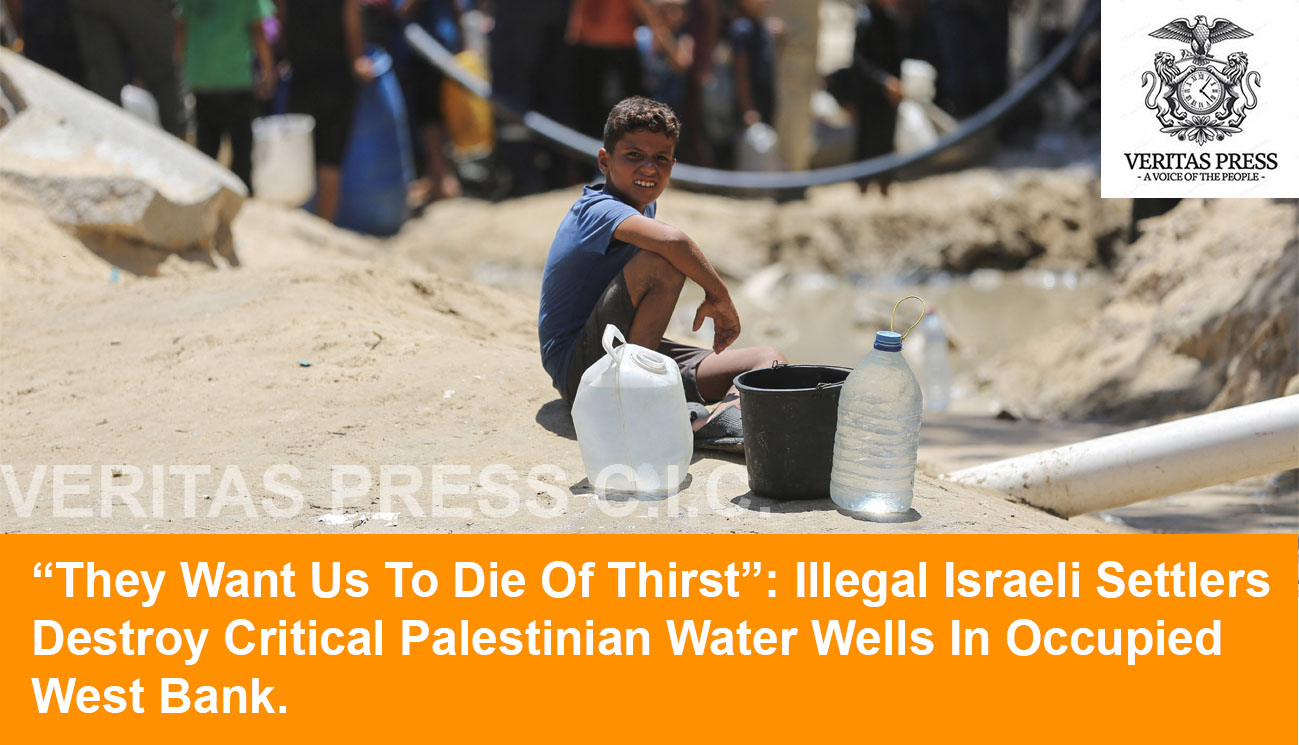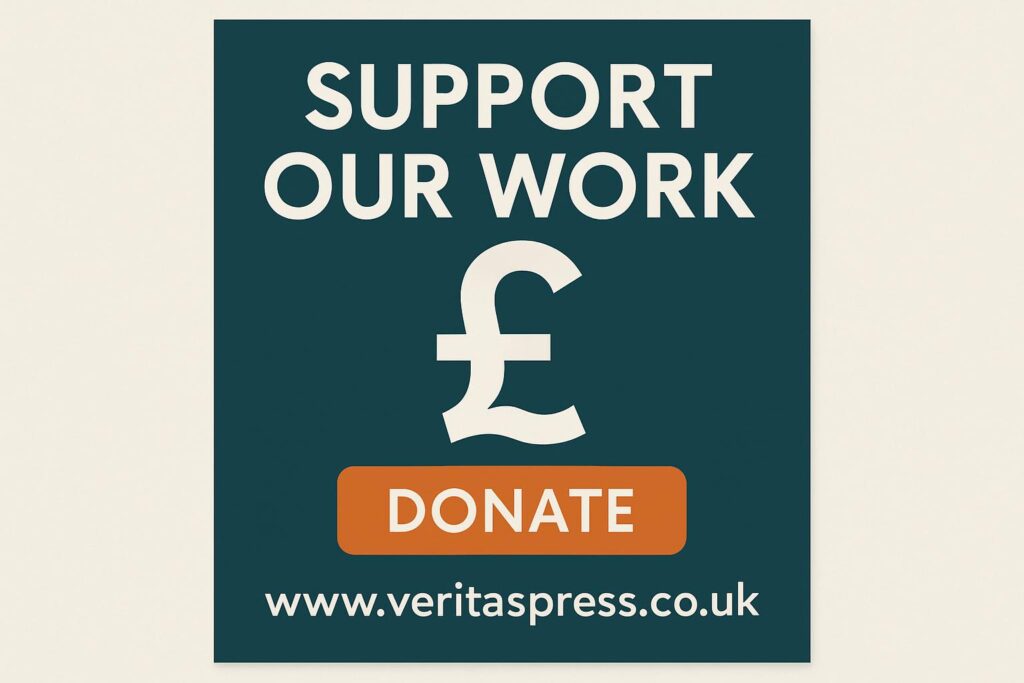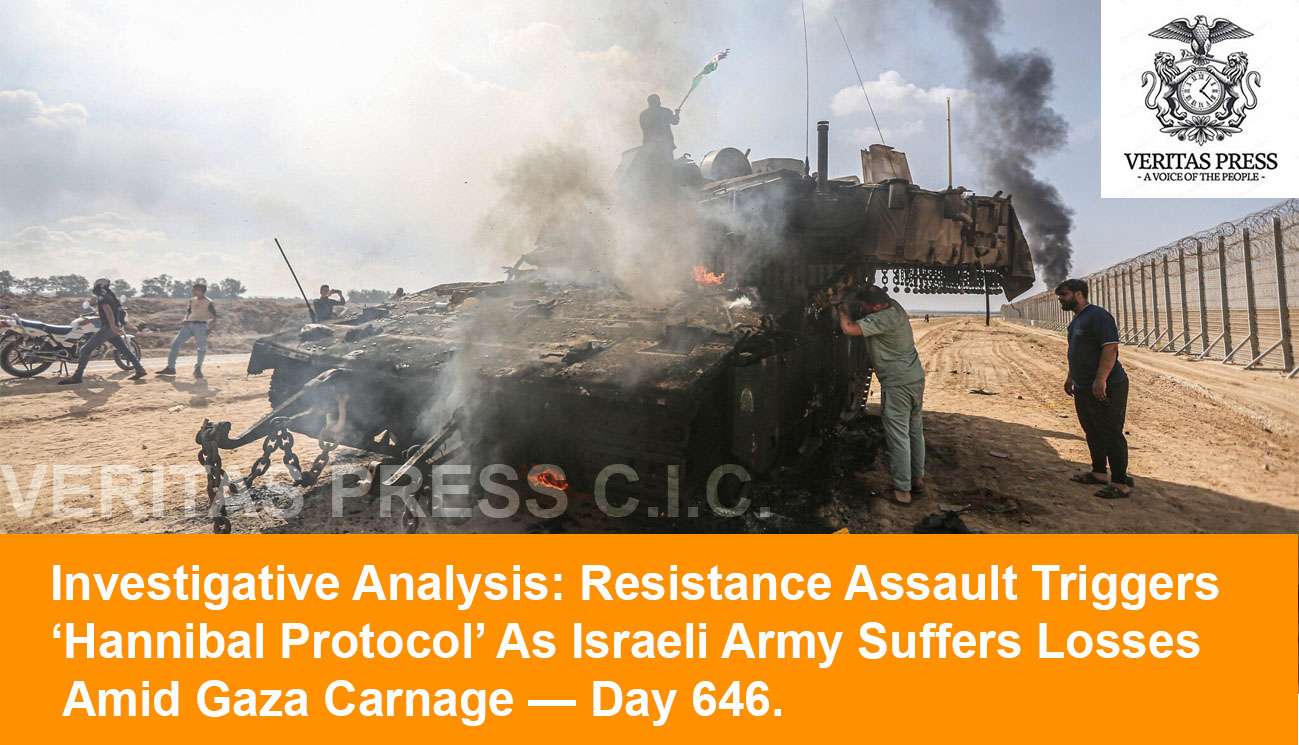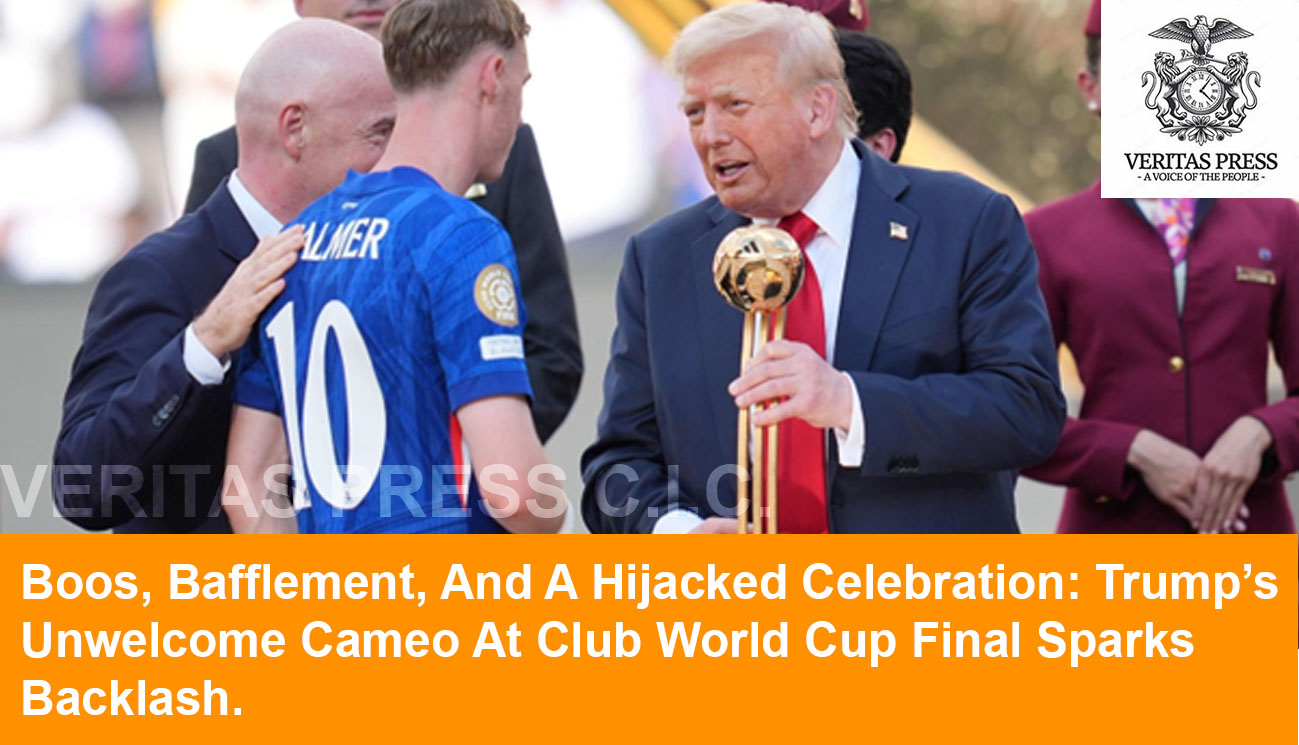Ein Samiya well system serving dozens of Palestinian villages sabotaged as settler violence escalates with state protection.
KAFR MALIK, OCCUPIED WEST BANK — In a brazen act of sabotage amid a surge in state-backed settler violence, illegal Israeli settlers destroyed several water wells in the Ein Samiya area of the occupied West Bank on Sunday night, cutting off the only source of clean water to dozens of Palestinian villages.
Armed settlers descended on the wells, located near the Palestinian village of Kafr Malik in eastern Ramallah, smashing infrastructure and contaminating the water sources, according to eyewitnesses and the local water authority.
“They came with rifles, smashed the pumping equipment, and poured oil into the water,” said 58-year-old Mahmoud Darwish, a resident of nearby Deir Jarir. “We begged the soldiers who were standing nearby to intervene, but they just watched. Some even laughed.”
The Jerusalem Water Undertaking (JWU), the main Palestinian utility operating in the region, confirmed in a statement that all six wells at Ein Samiya, operational since the 1960s, were rendered unusable. The utility warned that the destruction has “completely halted the water supply to more than 40 villages in the Ramallah and al-Bireh governorates,” home to tens of thousands of Palestinians.
“This is an attack not just on infrastructure but on human survival,” said JWU director Eng. Jihad al-Tawil. “We are looking at a potentially catastrophic humanitarian crisis. If this is not reversed immediately, entire communities will be forced to abandon their homes.”
A Pattern Of Weaponising Water:
Experts and rights groups say this latest assault is part of a long-standing Israeli strategy to control and restrict Palestinian access to water, a policy often described as hydrological apartheid.
“Water has been weaponised by the Israeli occupation for decades,” said Omar Shakir, Israel and Palestine Director at Human Rights Watch. “The targeting of wells in Ein Samiya reflects an increasingly violent attempt to forcibly transfer Palestinians from their land by making life unlivable.”
According to Al-Haq, a leading Palestinian human rights organisation, Israel denies permits for Palestinians to repair or build wells while expanding access to the same aquifers for illegal settlements. The Israeli state-owned water company Mekorot, provides uninterrupted water to nearby settler outposts, whose residents enjoy lush gardens and swimming pools even during peak drought periods.
“It’s water for settlers, and thirst for the occupied,” said Al-Haq researcher Lana Badran. “What happened in Ein Samiya is not an isolated incident; it’s part of a systematic policy.”
A 2023 B’Tselem report found that Palestinian per capita water consumption in the West Bank is often below 60 litres per day, half the minimum amount recommended by the World Health Organization, while Israeli settlers consume four to five times that amount.
“We’re Being Erased, One Well At A Time”
In Ein Samiya itself, the destruction has revived trauma from last year, when escalating settler violence forced several Bedouin communities in the area to flee. At the time, UN officials warned the exodus amounted to ethnic cleansing. The same pattern, locals say, is repeating now, only with water as the primary weapon.
“I’ve lived here all my life, and this is the final blow,” said 71-year-old Abu Firas, a shepherd from Ein Samiya. “No water means no crops, no animals, no people. They want us to die of thirst or leave.”
Local journalist Alaa Rimawi, who documented the aftermath, described scenes of deliberate environmental sabotage. “This wasn’t just vandalism. Pipes were cut, water tanks smashed, and the electrical controls destroyed. It was calculated, efficient destruction.”
Footage shared by Palestinian media shows armed settlers, many masked, arriving in pickup trucks. Witnesses say Israeli soldiers arrived shortly afterwards, but made no arrests and refused to intervene.
Settler Violence Escalates Amid Government Impunity:
The attack on Ein Samiya comes amid an unprecedented surge in settler violence in the West Bank, with 2025 already marking one of the deadliest years on record. According to data from the Palestinian Ministry of Local Governance, there were over 2,150 recorded settler assaults in the first six months of the year alone, resulting in the killing of at least four Palestinians and the displacement of dozens more.
Much of the violence is being driven by extremist settler groups like Tzav 9, who operate openly with ideological and logistical support from senior Israeli officials. On the same day as the Ein Samiya sabotage, dozens of Tzav 9 members, joined by families of Israeli hostages, blockaded humanitarian aid trucks at the Allenby Bridge crossing from Jordan into the occupied West Bank.
“No aid to Gaza until the last hostage returns!” the group chanted, according to Israel Hayom, as over 300 aid trucks were stopped. The Allenby Bridge is the only official border crossing connecting Jordan to the West Bank and Gaza, and the UN Office described the incident for the Coordination of Humanitarian Affairs (OCHA) as a “direct obstruction of vital humanitarian access.”
Gaza’s Starvation: A Mirror Of West Bank Repression.
The blockade on Gaza aid comes as the enclave suffers a collapse of public health under what aid workers have called “engineered famine.” According to a Sunday statement by UNRWA, nearly 70,000 children in Gaza are suffering from severe malnutrition, and over 90% of the population lacks consistent access to food. Clinics have reported rising infant deaths and shocking new evidence of genetic abnormalities in premature babies, a phenomenon attributed to extreme malnutrition and environmental collapse.
“No aid has entered since March,” UNRWA spokesperson Juliette Touma told Al Jazeera. “We are on the edge of a total humanitarian implosion.”
Analysts say the settler sabotage in the West Bank mirrors the Israeli strategy in Gaza: destroy basic infrastructure, starve the population, and weaponise aid and water as tools of coercion.
“This is not chaos or policy failure,” said Dr. Tareq Baconi, president of the Palestine Institute for Public Diplomacy. “This is a coherent state strategy, a form of settler colonial warfare aimed at dismantling Palestinian presence on the land.”
Impunity At The Highest Level:
Despite mounting evidence of war crimes, the Israeli government continues to act with impunity. In November 2024, the International Criminal Court (ICC) issued arrest warrants for Prime Minister Benjamin Netanyahu and former Defence Minister Yoav Gallant, citing war crimes and crimes against humanity in Gaza. The following month, the International Court of Justice (ICJ) began hearings in a genocide case against Israel.
Yet attacks like the Ein Samiya sabotage continue unchecked, often under direct military cover. International law experts warn that targeting civilian infrastructure such as water sources in an occupied territory is a clear violation of the Fourth Geneva Convention.
“These are crimes of annihilation by slow violence,” said legal scholar Dr. Noura Erakat. “Destroying water wells in occupied territory is not just criminal, it is genocidal.”
A Crisis Ignored:
So far, there has been no official response from the Israeli military or government regarding the Ein Samiya attack. International condemnation has also been muted.
“This silence is complicity,” said Riyad Mansour, the Palestinian Ambassador to the United Nations. “How many more villages must be emptied before the world acts?”
Meanwhile, communities like Kafr Malik, Deir Jarir, and Ein Yabrud wait for emergency water deliveries, hoping they will arrive before disease, displacement, or despair take over.
“This is no longer a question of occupation,” said local activist Nisreen Taha. “This is erasure. And it’s happening in plain sight.”
Conclusion: A War On Water, A War On Existence.
The destruction of the Ein Samiya wells is not an isolated crime; it is the latest chapter in a decades-long project of violent dispossession under the guise of security. This is a calculated form of settler-colonial warfare, where essential resources are deliberately targeted to break the will of an occupied people and erase them from their land. When settlers smash a well, they do not just break pipes; they dismantle livelihoods, extinguish futures, and send a clear message: Palestinians are not meant to live here.
This attack comes with the full knowledge, and in many cases, the direct protection of the Israeli military and state institutions. As eyewitnesses and human rights groups have made clear, soldiers routinely stand by, or even assist, while settlers destroy Palestinian homes, crops, livestock, and now, water infrastructure. In international law, the targeting of civilian infrastructure in occupied territory is a war crime. In practice, it is ignored or justified under the language of “security,” as the global community looks away.
What we are witnessing is not a breakdown of order, but the enforcement of a brutal order: one where 770,000 illegal settlers live with full rights, state services, and access to water, while millions of Palestinians face the daily threat of displacement, violence, and engineered deprivation. The destruction of the Ein Samiya wells is a microcosm of a broader strategy, a systematic effort to make Palestinian life unviable, one well, one field, one village at a time.
If the international community continues to issue statements while refusing to take decisive action, sanctions, prosecutions, and arms embargoes, the machinery of occupation will only accelerate. Gaza is already being starved. The West Bank is being parched. The question is no longer whether crimes are being committed. The question is: how much longer will the world allow them to continue?
As the pipes in Ein Samiya lie shattered and dry, so too does the credibility of a global order that claims to uphold human rights while allowing apartheid, ethnic cleansing and genocide to unfold in real time. Justice delayed is complicity. And in Palestine, it is costing lives.




























